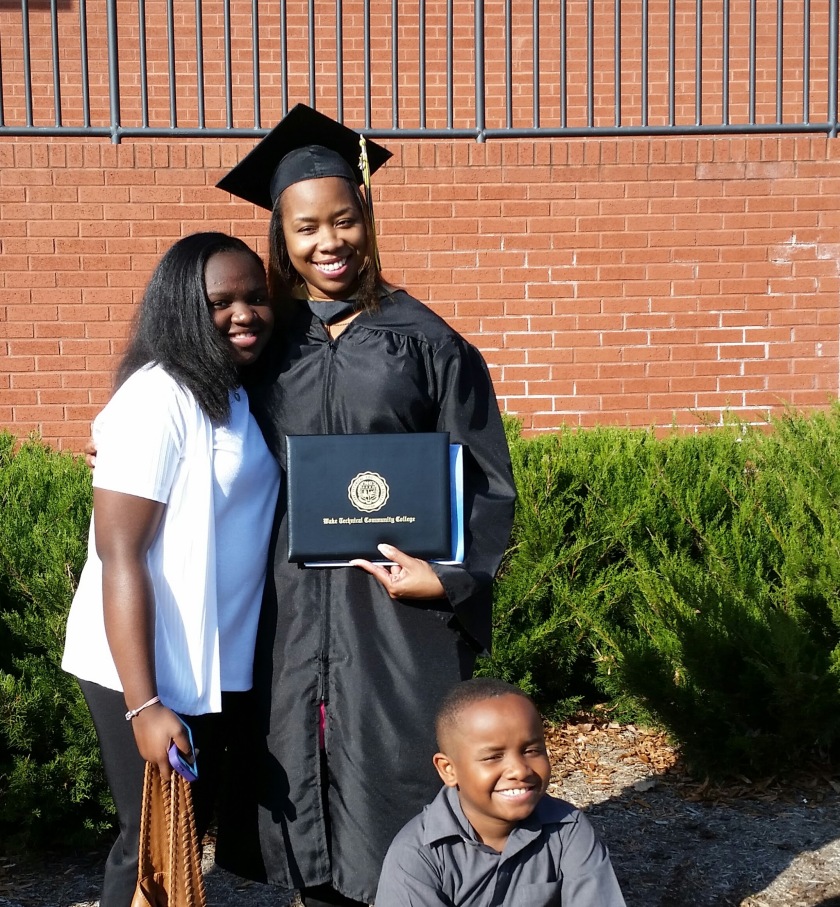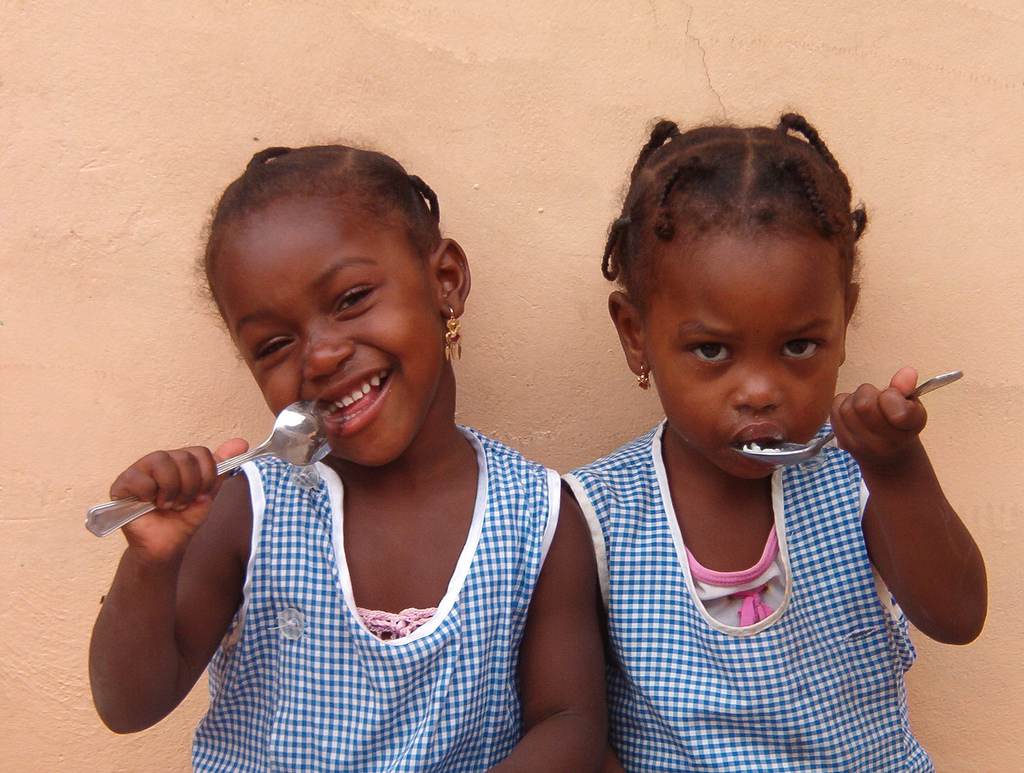I had my first mentor when I was 13. My mother was working as a Court Clerk in Queens Supreme Court in New York, and my elementary school was closer to her job than our home. Rather than take the multiple city bus rides it would take to get home, I took a ten minute bus ride to her job each day and waited in the chambers of the Judge she was working with until she got off. His name was Judge Kenneth Brown. While I’m sure his chambers were worthy of a man of his stature, all I remember was his small television and toaster. While he was on the bench, I would do my homework, watch television and call my friends on three-way (which was a big deal in the nineties). When he was in between cases, he would pop in and make us raisin toast while we talked about his life and his cases. He told me about having to send a picture in with his law school application and being denied repeatedly based on his race. He told me about the joy he felt when finally attaining his degree. He told me about being a single father to his daughter and working nights in the Post Office to pay for law school. He passed away years ago, and I doubt he would remember much about the skinny girl eating toast in his chambers. However, the time we spent together made a significant impact on my decision to go to law school and my dream to one day sit on a bench. The thing is, my mother had been working for the courts my whole life. I had been around lawyers and Judges but never close enough to hear their stories. Never close enough to envision myself doing the same thing. I remember thinking if he could achieve his dreams in the face of unimaginable setbacks, so can I. Mentorship can be a subtle influence in that way. It makes the impossible seem possible just by humanizing your dreams.
According to the National Mentoring Partnership, at-risk young adults are 55% more likely to enroll in college and 130% more likely to hold leadership positions if they have a mentor. A positive mentoring relationship can be life altering. Recently, I had the chance to chat with Dedan Bruner, Attorney and President of the D.C. Chapter of Concerned Black Men, an organization founded to fill the void of positive black male role models in our communities by providing mentors and programs that affirm psychological, academic and career enrichment. Mr. Bruner shared some of his experiences mentoring, his thoughts on the importance of mentorship, and how to make the difference in the life of a child.

Q. Tell us a little about yourself.
I am from Pasadena, California. I live in Washington, D.C. and I came to the area to attend Howard University in 1994 and have been here ever since.
Q. What do you do for a living?
I’m an attorney. I work at the D.C. Office of Human Rights where I investigate employment based complaints alleging discrimination and/or harassment.
Q. How would you define mentorship?
The act of assisting others through potential challenges and pitfalls in a given arena.
Q. Why did you decide to become a mentor?
It’s funny. I’ve always been an advocate of civic service, but I never felt comfortable becoming a mentor. My old excuse was that I didn’t feel like I’d be in D.C. long enough. After living in D.C. for about 15 years, a friend called me on my flawed logic and challenged me to get involved. I’m glad she did. I started mentoring through a program sponsored by the D.C. Chapter of Concerned Black Men (CBMDC) named Just Say Yes (JSY). JSY is a group based mentoring program for D.C. area boys aged 9-15. I started off as a visitor. A few years later, I stepped into a leadership role as the program chair and ultimately, President of CBMDC. Most importantly, I’m still a mentor.
Q. Did you have mentors growing up? If so, how did those relationships impact you?
I’ve been fortunate enough to have had several mentors along the way, but the experience I recount most was the mentor I had back in middle school. While I don’t remember the man’s name, I remember that he took me to my first Raiders game (I’m still a fan), and that he gave me a wallet for Christmas. I recall being disappointed when after inspecting it thoroughly, I learned that the wallet was empty. I have to remind myself of that story on the occasions that I may get frustrated that one of the young men I’m working with “doesn’t get it.” I’m proof that sometimes the lessons take a while to sink in.
Only perfect kids need perfect mentors.

Q. I’ve mentored young women at different phases in my life. Both in college and in law school, I was involved with mentorship programs that had active initiatives to recruit our men and other men of color to mentor because they had difficulty recruiting men of color. I am so excited to hear about Concerned Black Men and other initiatives led by black men. What, if anything, do you think is the deterrent to many of our men becoming mentors?
Great question. We hear [from] a lot [of] guys [that they] need to “get themselves together” before they can expect to help someone else. My response is usually, “only perfect kids need perfect mentors.” [Also], a lot of guys have said that they don’t have the time to mentor. Many D.C. programs only meet a few times a month (JSY meets twice). While the excuse is common, I try to refrain from refuting it because we make time for those things that we see value in. If someone tells us he doesn’t have the time to mentor, we thank him and keep it moving.
I have also heard “I don’t have anything to offer/teach,” to which I try to impart that a mentor’s job is not to be a teacher, or a coach or even a lead blocker in the game of life. A mentor’s job is just to be there, to assist in working on a problem, not to solve a mentee’s problem. A mentor is a friend who has been a little further down the road [and] is willing to share what they’ve learned.
In all, the greatest deterrent is the potential mentor himself. If he believes he has something of value to offer, he will. Sadly, the converse is true as well.
Mentoring sounds good in conversation with others, but if it’s not your thing, find other ways to give back. Potential mentors need to keep in mind that often those who they’ll be mentoring have been disappointed by the men in their lives. If you cannot commit at least a year, it may not be the right vehicle in which to give back.

Q. How do you become a mentor?
In our program, all mentors attend an interest meeting. At that meeting, we go over the program because we want to make sure that it’s a good fit for the mentor. For most it is, but some find that our program may not work for them. Taking the time to properly set expectations is critical to getting off on a good foot. Next, mentors fill out an application and get fingerprinted. We do a comprehensive background check. We are not of the belief that those who may have made mistakes in their past are not suited to mentor. However, individuals with a history of domestic violence and/or pedophilia are not a liability I’m willing to take. It may sound harsh, but the safety of the youth we work with is [at] the foundation [of] everything we do. After the background check comes back, the potential mentor is either approved to mentor or notified that his background check yielded results which make his participation in our program impossible.
Q. What are the qualities of a good mentor?
There is no perfect combination of qualities but some I look for are: 1) flexibility, 2) a good listener, 3) a person who doesn’t see his mentee as a victim or a charity case, 4) person not afraid to laugh at himself, 5) someone who is tolerant of other views and positions, and 5) most importantly, someone who is consistent and dependable.
Q. What would you say to someone hesitant about mentoring?
One of the great things about having a group mentoring program is that we allow visitors. That way, those who may have hesitation can visit a few sessions before deciding if the program is a good fit. Generally, I’d tell the person to challenge himself. After all, that is what we’re asking the boys to do. On the same token, I ask potential mentors to be honest with themselves. Mentoring sounds good in conversation with others, but if it’s not your thing, find other ways to give back. Potential mentors need to keep in mind that often those who they’ll be mentoring have been disappointed by the men in their lives. If you cannot commit at least a year, it may not be the right vehicle in which to give back.
Q. What do you do if you feel like your mentor/mentee relationship isn’t a good fit?
New mentoring relationships take time to cultivate. The first several times a mentee may respond with one word answers (their day was fine, their family is fine, and they had fine for dinner). That’s to be expected. Mentors, especially new mentors, should not be disheartened if it takes a while for a mentee to let you in their circle of trust. Being authentic and consistent are critical during this timeframe. If, it is ultimately determined that a fit doesn’t work, we may switch mentors.
New mentoring relationships take time to cultivate. The first several times a mentee may respond with one word answers (their day was fine, their family is fine, and they had fine for dinner). That’s to be expected. Mentors, especially new mentors, should not be disheartened if it takes a while for a mentee to let you in their circle of trust. Being authentic and consistent are critical during this timeframe.

Q. What has been your most memorable experience thus far?
It’s not a pleasant story. When I first took over as Program Chair, a mother told me not to tell her son to pull up his pants. We had a polite exchange of ideas. Her take was that telling him to pull them up just put extra emphasis on it and made it more of an issue and that if unaddressed, he’d eventually get tired of the fad and would pull them up. My position was that her son was someone the younger mentees looked up to and emulated. I did not want younger boys in our program picking up what we deemed bad habits. [In the end, she] remov[ed] her son from the program. Last year, she reached out to me because her son found himself in serious legal difficulty, and she needed people to write character references on his behalf. All I remember about the young man is the circumstances in which he left the program.
Q. What advice would you give to parents searching for mentors for their children?
I have a few tips:
Get involved. Statics show that youth programs are more successful when they have parent commitment and buy in.
Ask questions, give updates, and feedback. These are your kids, you should know what’s happening with them and you are [in the] best position to help us connect with your kids. If a boy got a part in a school play, hit the game winner, or if his favorite grandparent just passed away, these events can greatly impact a mentee’s mood. Giving us a head’s up helps mentors to better support the mentee.
Respect the mentor/mentee relationship. I tell parents and mentees alike that a mentor is not an extra set of parental ears. It’s not my job to report back. In fact, doing so can undermine the mentor/mentee relationship which should be built on trust and confidence. That said, I make it clear that if there was ever a threat of violence, I would not keep that confident. However, in a few cases where those situations have occurred, what I was able to do was facilitate the mentee sharing the information. That way the mentor/mentee bond is strengthened as well as the communication between parent and child.
I often get moms who say to me “I need a mentor for my son because a woman cannot raise a man.” I was raised by my mother, a grandmother and a gang of aunts so I don’t believe this. At the same time, it’s not my place to tell parents that they are wrong. What I [ask] in these instances is, what are the top things you want your son to learn? [Does the list include] integrity? Respect? Consideration? Self-Confidence? Good manners?Discipline? None of those characteristics are masculine or feminine. In fact, they’re some of the same things I want for my daughter. These are things that are best modeled at home and supported by the activities your son is involved in. We will do our very best to help in those efforts through programs that explore those and many other values.
Q. Any long term goals or dreams?
In the words of Big Boi, “ I just wanna sit back and watch my little girl blow bubbles.” For each of the last 6 years I’ve said it was my last year so that I can spend more time with my daughter. So far, I haven’t taken that step back. To the contrary, my mentees have met my daughter, and she knows when I’m going to “spend time with the guys.” Most of my mentees are living in single-parent, mom-led households; I think it’s important that they see me taking care of my daughter. Not because I’m good at it, to the contrary, I tell them about my many mishaps. My hope is that it sends a message that being a father [is] the act of rolling up your sleeves and making good on the commitment to the best you can for your child. Especially in those times [when] you’re scared and have no clue what you’re doing. I’ll step back one day, but as of right now, we’re having too much fun.
For more information about the D.C. Chapter of Concerned Black Men, visit: www.cbmdc.org, Instagram @cbmdc and Facebook: https://www.facebook.com/ConcernedBlackMenDCChapter/. You can also visit the national website at http://cbmnational.org to find a chapter near you.

***
About The Author
Faye McCray is an attorney by day and writer all the time. Her work has been featured on My Brown Baby, AfroPunk, AfroNews, For Harriet, Madame Noire, Black Girl Nerds, Black and Married with Kids, and other popular publications. Faye also has a number of short stories and a full length novel available for purchase on Amazon. Most importantly, Faye is a proud wife and mother to three beautiful and talented young boys who she is fiercely passionate about raising. You can find Faye on Twitter @fayewrites and on the web at fayemccray.com.
attorney by day and writer all the time. Her work has been featured on My Brown Baby, AfroPunk, AfroNews, For Harriet, Madame Noire, Black Girl Nerds, Black and Married with Kids, and other popular publications. Faye also has a number of short stories and a full length novel available for purchase on Amazon. Most importantly, Faye is a proud wife and mother to three beautiful and talented young boys who she is fiercely passionate about raising. You can find Faye on Twitter @fayewrites and on the web at fayemccray.com.

 attorney by day and writer all the time. Her work has been featured on My Brown Baby, AfroPunk, AfroNews, For Harriet, Madame Noire, Black Girl Nerds, Black and Married with Kids, and other popular publications. Faye also has a number of short stories and a full length novel available for purchase on Amazon. Most importantly, Faye is a proud wife and mother to three beautiful and talented young boys who she is fiercely passionate about raising. You can find Faye on Twitter @fayewrites and on the web at fayemccray.com.
attorney by day and writer all the time. Her work has been featured on My Brown Baby, AfroPunk, AfroNews, For Harriet, Madame Noire, Black Girl Nerds, Black and Married with Kids, and other popular publications. Faye also has a number of short stories and a full length novel available for purchase on Amazon. Most importantly, Faye is a proud wife and mother to three beautiful and talented young boys who she is fiercely passionate about raising. You can find Faye on Twitter @fayewrites and on the web at fayemccray.com.

















 rried father of three amazing sons. He is also a proud graduate of Duke University where he holds a BA in History and African/African American History, and Howard University School of Law. He is also a regular commentator on the
rried father of three amazing sons. He is also a proud graduate of Duke University where he holds a BA in History and African/African American History, and Howard University School of Law. He is also a regular commentator on the 



 attorney by day and writer all the time. Her work has been featured on
attorney by day and writer all the time. Her work has been featured on 
